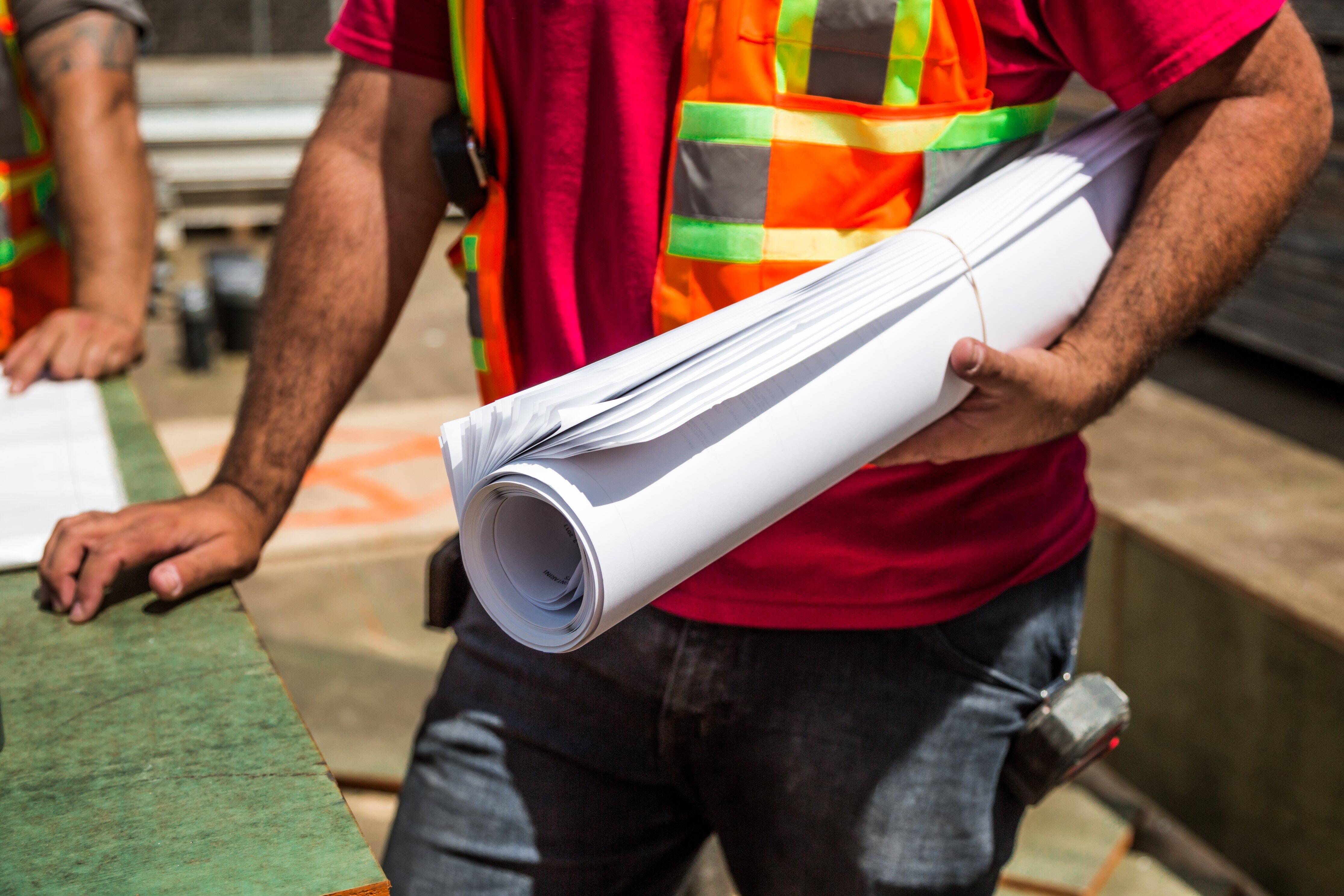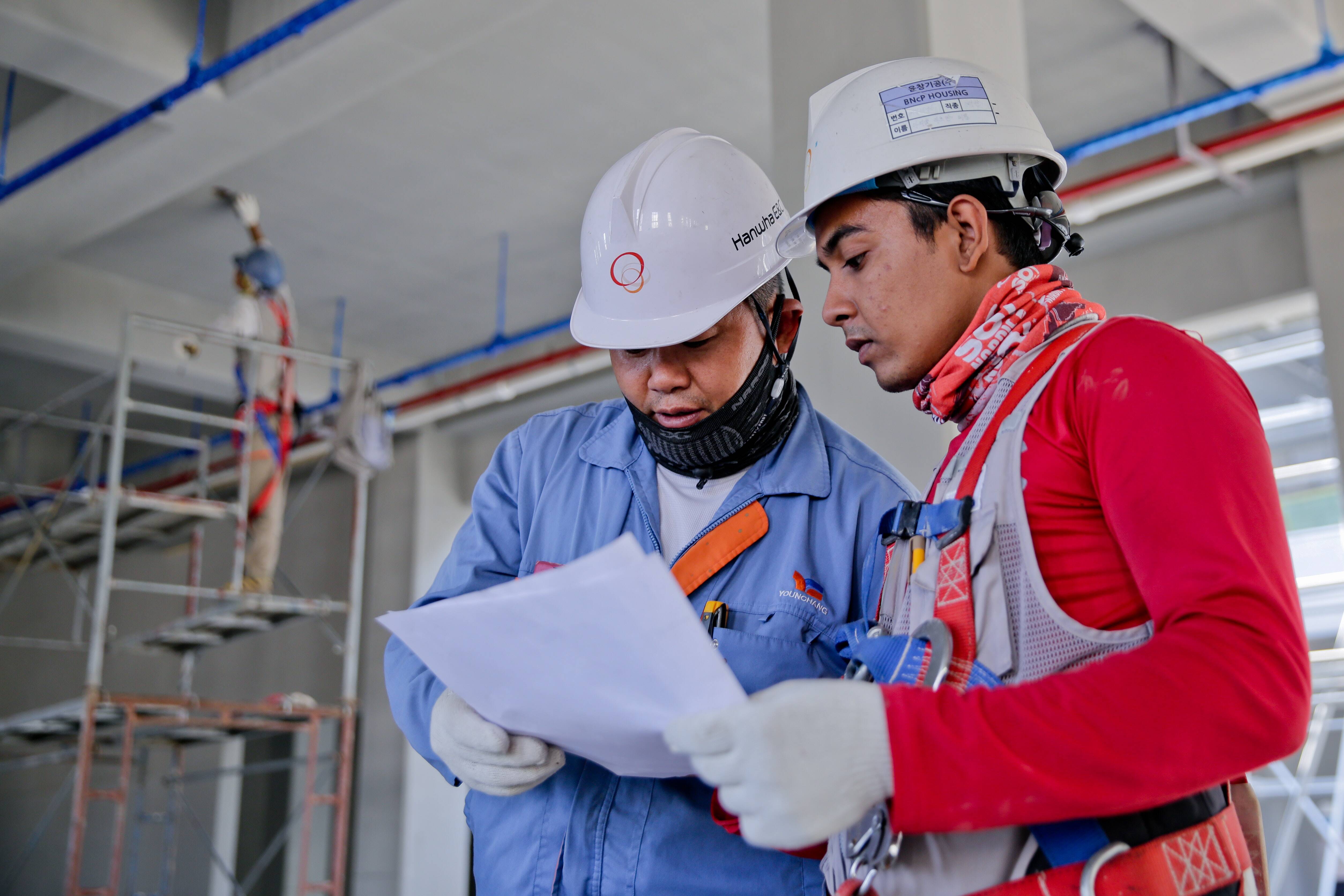How to Develop a Commercial Construction Project Schedule
A commercial construction project schedule is a timeline, created by the project manager, used as a visual plan for building projects. Having a construction project schedule is useful because it can break down the larger plan into smaller, more manageable phases. Many construction project schedules incorporate Gantt charts, which are helpful in visualizing how each phase of the construction project connects with the others.
Construction project schedules are very useful to help keep the project organized and on track. Additionally, they facilitate communication with employees and subcontractors by providing a detailed explanation of each team members specific timeline and its relation to the overall project timeline. Having a detailed project schedule can also help control costs by providing a clear platform for the project to be completed as efficiently as possible.

Table of Contents
Factors Affecting a Construction Project Schedule
There are several factors which can affect a construction project schedule. Almost every construction project faces unplanned challenges, and a good construction project manager will create a contingency plan to deal with these factors. Some of these factors include:
- Project Size: building a commercial high-rise in a large city requires a vastly greater amount of resources than building a small home in a suburban area. However, the difficulty of each project is also a major contributor that affects the construction project schedule. A commercial retail building is a comparatively easy, low-intensity project to complete when compared to a custom-built city skyscraper.
- Weather: The construction industry is constantly at the mercy of the weather, especially during the early stages of construction. Common weather issues, such as rain or snow, can greatly impact the timeline of a construction project, especially in an area where such weather is uncommon and workers are not used to the conditions. More drastic weather issues, such as natural disasters, can also have a hugely adverse effect on construction projects and are more difficult to predict and plan for.
- Availability of Resources: In many construction projects, a subcontractor cannot begin working until the previous subcontractor has completed their job. Because of this, one subcontractor’s delay could cause the rest of the project to fall behind schedule. Additionally, if there is a shortage of materials, the entire project can be held up until more of that material is delivered.
- Permits and Inspections: Throughout its life, a construction project is inspected by the city and various health and safety organizations to ensure the building is up to code. If at one point the project does not pass an inspection, it can cause an unplanned delay which moves back the timeline of the entire project.
While some of these factors are outside of the project manager’s control, planning for some delays in the commercial construction project schedule can help the overall project stay on track for its delivery date.

Construction Timeline Overview
It is important for the construction project manager to create a timeline for the project schedule. This timeline is often divided up into several stages, including:
- Determine Project Phases: the three commonly used phases of production are pre-construction, construction, and close out.
- Break Down Each Phase: By breaking down each stage into individual parts, a construction project manager can understand how each part of the project is interdependent on one another and can carefully plan each stage to be as efficient as possible.
- Establish Benchmarks for Each Phase: Determining milestone deadlines to be met helps both the construction project manager and the subcontractors keep the project on track.
- Communicate Project Plans: Once the project schedule has been created, the project manager will then communicate the project schedule to all necessary personnel. When each team member understands their role, they are able to work more efficiently to deliver the project on time.
- Periodically Review Project Schedule: Once construction has begun, the project manager will review the schedule to make any necessary adjustments for scope.

Best Practices
An important part of creating an effective commercial construction project schedule is to be realistic about the schedule. Creating unrealistic deadlines will not only add stress and increase the probability of error but also may end up being more costly and delay the project even further. Creating a realistic schedule with a buffer for some delays, such as weather, is a common practice of great construction project managers.
Another practice done by the best construction project managers is creating a plan and budget before beginning anything else. A detailed plan and budget will create a guideline for the entire project and ensure that the deliverables and budget are realistic and attainable.
Lastly, an effective commercial construction project schedule will be clear for all members of the team to understand and will facilitate communication between the project manager and subcontractors. If the subcontractors have a detailed understanding of their own section of the project as well as an understanding of the entire project, they are able to see how their own portion affects the success of the entire project.

Conclusion
Developing a commercial construction project schedule is an important part of creating a successful project that is delivered on time and within scope. Creating a detailed project schedule helps lay the foundation for a successful construction project. An effective commercial construction project schedule plans for the unplanned, has a comprehensive overview with detailed plans for each phase, and is started by creating a detailed plan and budget.



